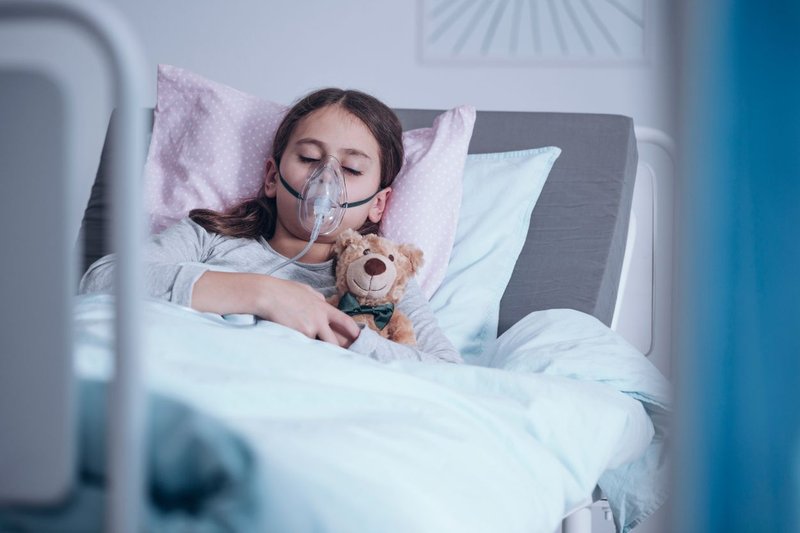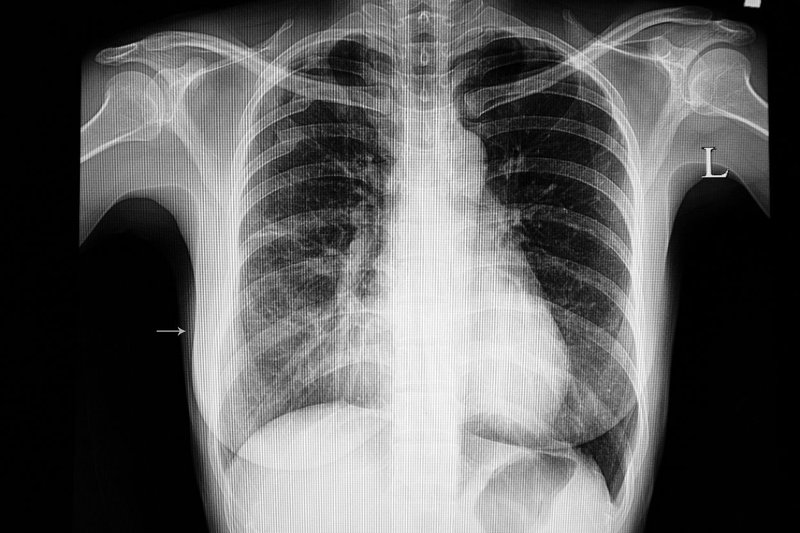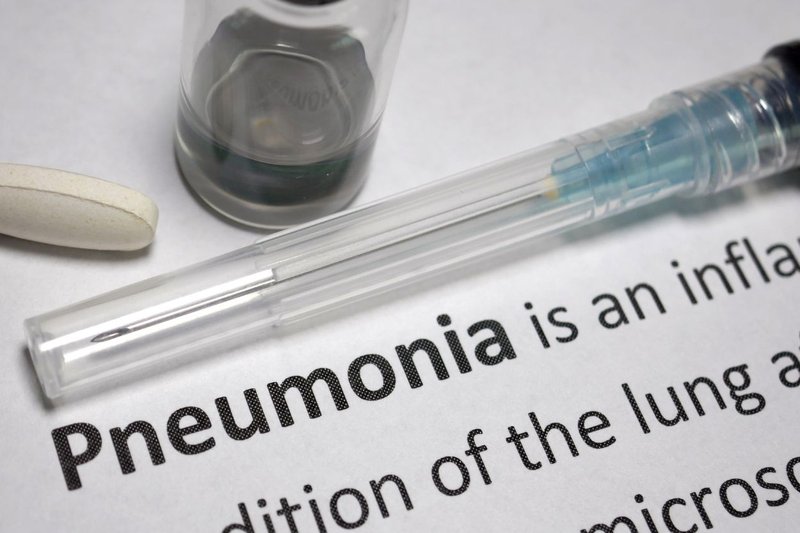Understanding Pneumonia: Causes, Symptoms, and Proactive Respiratory Health
In this article, we’ll take a look at pneumonia, an intricate lung infection caused by bacteria or viruses that demand medical attention. If you have pneumonia, you may experience a bad cough, a fever or difficulty breathing. Pneumonia is most likely to develop after having a cold or flu. This detailed article goes beyond the basics, unravelling the complexities of pneumonia, and offering insights that extend beyond standard information sources.
What is pneumonia?
Each lung is filled with thousands of small airways that branch into tiny air sacs, which allow oxygen from the air we breathe to enter the blood. If you have pneumonia, these air sacs in the lung fill with fluid and mucus, which interferes with the breathing process.
Pneumonia can affect people of any age but is more common in young children, the elderly and people with weak immune systems. Treatment for pneumonia depends on the severity and the specific cause but includes a combination of medication and self-care treatments, including getting plenty of rest and drinking lots of fluids.
Causes of pneumonia
Pneumonia is usually caused by an infection with bacteria or viruses that have been inhaled into the lungs. Your body's immune system then sends white blood cells to attack the germs that are causing the infection. This causes the air sacs in the lung, called alveoli, to become filled with fluid and mucus, which can cause difficulty breathing.
Risk factors
Anyone can get pneumonia, but young children and people over the age of 65 have a higher risk of developing the condition. Some other factors that can increase your risk of getting pneumonia include:
- Having a weak immune system, which can occur in people who have HIV/AIDS;
- Taking anti-inflammatory medications, such as corticosteroids;
- Other lung conditions, such as asthma, chronic obstructive pulmonary disease (COPD) or bronchiectasis, and;
- Smoking or vaping, can damage your lungs and make it harder for your immune system to prevent lung infections.

What are the types of pneumonia?
Bacterial pneumonia
Bacterial pneumonia is caused by bacteria. The most common type of bacteria that causes this form of pneumonia is Streptococcus Pneumoniae. Other bacteria that cause pneumonia include Klebsiella Pneumoniae and Haemophilus Influenzae, which are more common in people with weak immune systems.
Viral pneumonia
Viral pneumonia is caused by infection with a virus. Some of the common types of viruses that cause this type of pneumonia include the influenza virus (which also causes the flu), adenoviruses and rhinoviruses (which cause colds).
Fungal pneumonia
Fungal pneumonia is a rare type of pneumonia caused by a fungal infection. It is more common in people with weak immune systems, which includes people who are taking medications to suppress their immune system and people who have HIV/AIDS. Some of the common causes of fungal infections that can lead to this type of pneumonia include Histoplasmosis, Coccidiomycosis, Blastomycosis, Aspergillosis and Cryptococcosis.
Parasitic pneumonia
Although uncommon, some types of parasites can also cause pneumonia. They can enter the body through direct contact with the skin, through the mouth, or through an insect bite. Some of the parasites that can cause pneumonia include Toxoplasma gondii, Strongyloides stercoralis, Ascarislumbricoide and Plasmodium malaria.

What are the 4 stages of pneumonia symptoms?
Pneumonia manifests in several stages, each characterised by distinct symptoms:
- Stage 1 - Early Symptoms: In the initial stage, individuals may experience mild symptoms such as fatigue, cough, and low-grade fever. These symptoms can often be mistaken for a common cold or flu.
- Stage 2 - Consolidation: As the infection progresses, consolidation occurs, leading to more pronounced symptoms such as high fever, productive cough with yellow or green sputum, chest pain, and difficulty breathing. Crackling sounds may be heard in the lungs upon auscultation.
- Stage 3 - Resolution: With appropriate treatment, the body's immune response begins to overcome the infection, leading to a gradual improvement in symptoms. Fever subsides, cough becomes less productive, and overall energy levels increase.
- Stage 4 - Recovery: In the final stage, the individual experiences a complete resolution of symptoms, although fatigue and cough may persist for several weeks. Lung function gradually returns to normal, and the individual resumes their daily activities.
Recognising these stages can aid in early detection and prompt treatment of pneumonia.
What are the danger signs of pneumonia?
While pneumonia can vary in severity, certain danger signs indicate a potentially serious infection requiring immediate medical attention:
- High Fever: A persistent high fever, especially accompanied by chills and sweating, may indicate a severe bacterial pneumonia.
- Severe Chest Pain: Intense chest pain, particularly with breathing or coughing, could indicate inflammation of the pleura (pleurisy) or pneumonia complications such as a lung abscess or pleural effusion.
- Difficulty Breathing: Shortness of breath, rapid breathing (tachypnea), and shallow breathing may signify significant lung involvement and inadequate oxygenation.
- Confusion or Altered Mental Status: Pneumonia can affect oxygen levels in the blood, leading to confusion, disorientation, or changes in mental status, especially in older adults.
- Bluish Skin or Lips: Cyanosis, characterised by a bluish tint to the skin or lips, suggests poor oxygenation and requires immediate medical attention.
- Persistent Vomiting: Persistent vomiting, particularly in children, can lead to dehydration and may indicate severe pneumonia or complications such as sepsis.
If any of these danger signs are present, seeking urgent medical care is crucial to prevent complications and ensure timely treatment.

How long does pneumonia last?
The duration of pneumonia can vary depending on several factors, including the underlying cause, the individual's overall health, and the promptness of treatment. In general, the recovery period for pneumonia can range from one to three weeks, although some individuals may experience lingering symptoms for several weeks or even months.
Factors influencing the duration of pneumonia include:
- Type of Pneumonia: Bacterial pneumonia typically responds well to antibiotics and may resolve more quickly than viral or fungal pneumonia.
- Underlying Health Conditions: Individuals with weakened immune systems, chronic lung diseases, or other medical conditions may experience a more prolonged recovery from pneumonia.
- Age: Young children, older adults, and individuals with compromised immune systems may take longer to recover from pneumonia.
- Treatment Adherence: Compliance with prescribed medications, rest, and supportive measures can accelerate recovery and shorten the duration of pneumonia.
While most cases of pneumonia resolve within a few weeks with appropriate treatment, it's essential to follow healthcare provider recommendations and attend follow-up appointments to ensure complete recovery and prevent recurrence.
How serious is getting pneumonia?
Pneumonia can range in severity from mild to life-threatening, depending on various factors:
- Overall Health: Individuals with underlying health conditions such as chronic lung disease, heart disease, diabetes, or weakened immune systems are at higher risk of developing severe pneumonia and complications.
- Age: Infants, young children, older adults, and individuals over 65 are more susceptible to severe pneumonia due to weaker immune systems and reduced lung function.
- Type of Organism: The type of microorganism causing pneumonia can influence its severity. Bacterial pneumonia, particularly caused by certain strains such as Streptococcus pneumoniae, can lead to more severe symptoms and complications.
- Prompt Treatment: Early diagnosis and initiation of appropriate treatment significantly reduce the risk of complications and improve outcomes for individuals with pneumonia.
Complications of severe pneumonia can include respiratory failure, sepsis, lung abscesses, and acute respiratory distress syndrome (ARDS), which may require intensive care and mechanical ventilation.
Types of treatment
Pneumonia is usually treated with a combination of medication and self care. Your specific treatment will depend on how bad your condition is and what is causing it. If you have very severe symptoms or have a weak immune system, you may need to go to hospital.
Self care: For mild cases of pneumonia, self-care treatments may help recovery. These include getting plenty of rest, drinking lots of fluids and avoiding cigarette smoke.
Medications: Mild bacterial pneumonia can be treated with oral antibiotics including amoxicillin and clavulanic acid, doxycycline or roxithromycin. Very severe bacterial pneumonia may need to be treated in hospital with intravenous antibiotics, such as benzylpenicillin.
Mild viral pneumonia is usually treated with self care. Over-the-counter pain-relief medications such as paracetamol, or anti-inflammatory medications such as ibuprofen, might help in reducing some of the symptoms of pneumonia.
Fungal pneumonia is usually treated with antifungal medications.
If left untreated, pneumonia can be life-threatening, but most cases will get better with a combination of proper medical treatment, rest, plenty of fluids and a healthy diet to boost your immune system. You are more likely to recover quickly if your condition is diagnosed and treated early. Most cases of pneumonia will start to improve within a week, but it will often take a few weeks for all symptoms to disappear.
Have you got more questions about your health? With Health&'s user-friendly personal health assistant, you can easily navigate through a series of simple questions to receive tailored support in just minutes.
Health& makes it easy to simply enter your search query in our A-Z library of medically verified health content, ensuring you find the best matches for your situation. Explore more health content, take early-intervention risk assessments, store your medical records and more! Discover the support you need with the Health& app, empowering you on your journey towards living better for longer.

